
In today’s digital world, Artificial Intelligence (AI) is revolutionizing Search Engine Optimization (SEO). The era of manual keyword stuffing and guesswork is over — businesses are now using AI SEO to create smarter, faster, and more effective optimization strategies.
If you want your website to stay competitive, integrating AI tools and insights into your SEO strategy is essential. Let’s explore how you can use AI SEO to improve your website’s visibility, rankings, and user experience.
AI SEO combines artificial intelligence and machine learning technologies to automate and enhance various SEO activities.
It helps you understand user intent, discover new keyword opportunities, generate optimized content, and analyze website performance — all at a scale and speed that humans alone can’t achieve.
Unlike traditional SEO, which relies on manual research and trial-and-error, AI SEO uses data-driven algorithms to deliver insights and improvements instantly.
Below are eight practical steps to transform your SEO efforts using AI-powered tools and methods.
Choosing the right topics is the foundation of successful SEO. AI can analyze millions of search queries, competitor websites, and content trends to identify what your target audience is searching for.
How to do it:
Ask AI tools to generate topic clusters around your core business area.
Use AI suggestions to identify questions your audience frequently asks.
Group similar topics together to avoid keyword cannibalization.
This ensures that you create content that directly aligns with user intent and fills market gaps.
AI doesn’t just find keywords — it understands the context behind them.
Benefits:
Generates long-tail, question-based, and semantic keyword variations.
Helps you uncover related search terms competitors might have missed.
Groups keywords by search intent (informational, navigational, transactional).
Use AI tools to generate lists like:
“Best eco-friendly packaging for small businesses,”
“Affordable sustainable packaging solutions,”
“How to switch to recyclable packaging.”
Then, verify volume and difficulty through traditional SEO analytics.
AI can assist at every stage of content creation — from ideation to editing.
Step-by-step process:
Generate an SEO brief including title, H2/H3 headings, target keywords, and word count.
Use AI to draft sections or suggest outlines.
Edit manually for accuracy, tone, and brand consistency.
Add your unique insights, data, and examples to make it authentic.
You can also use AI to craft meta titles, descriptions, FAQ sections, and content summaries to enhance click-through rates.
Refreshing your current content is one of the quickest ways to boost rankings.
AI can:
Analyze your pages for keyword gaps.
Suggest missing subtopics or related questions.
Rewrite sections for better readability and SEO.
Recommend internal linking opportunities.
Regular updates signal to search engines that your content is current and relevant — two key ranking factors.
AI can handle time-consuming technical tasks that often go unnoticed.
Examples of AI-powered technical SEO tasks:
Scanning your site for broken links, slow pages, and crawl errors.
Generating structured data and schema markup automatically.
Creating alt text for images and fixing missing metadata.
Monitoring page speed and mobile optimization.
By addressing technical issues proactively, you improve your website’s crawlability, user experience, and search engine performance.
AI doesn’t just help create and optimize content — it also analyzes how that content performs.
Use AI to:
Identify which pages are gaining or losing traffic.
Detect ranking fluctuations and provide insights on why they occurred.
Predict future keyword trends and suggest new opportunities.
Automate monthly SEO reports with summaries and actionable steps.
AI helps you interpret vast datasets in seconds, allowing you to make data-driven decisions faster.
AI-powered search systems favor content that is structured, authoritative, and easily understood.
To strengthen your authority:
Add structured data (schema) to your pages.
Write clear, concise answers to common questions (perfect for snippets and voice search).
Obtain backlinks from reputable sources.
Keep your content fresh and regularly updated.
When AI systems detect that your website consistently provides accurate, valuable information, they’re more likely to rank it higher or feature it in search results.
While AI offers tremendous benefits, misuse can backfire.
Common mistakes to avoid:
Mass-producing low-quality AI articles without human review.
Copying or rephrasing existing content with no added value.
Ignoring brand voice or factual accuracy.
Failing to fact-check or proofread AI-generated claims.
Remember: AI should assist, not replace your content creation and SEO strategy. Always balance automation with human expertise.
Let’s say you run a travel blog and want to boost traffic using AI SEO.
Step 1: Ask AI to suggest 10 trending travel topics for “Solo Female Travelers.”
Step 2: AI recommends ideas like “Best Safe Countries for Solo Women” or “Solo Travel Packing Checklist.”
Step 3: Generate keyword variations and questions like “Is solo travel safe for women?”
Step 4: Create a content outline using AI and then write and edit manually.
Step 5: Use AI to optimize meta tags, headlines, and internal links.
Step 6: Audit page performance monthly using AI analytics tools.
Within weeks, you’ll notice higher engagement, more organic traffic, and stronger authority in your niche.
Saves Time: Automates repetitive SEO tasks.
Improves Accuracy: Reduces guesswork in keyword and content planning.
Enhances Quality: Ensures content is well-structured and relevant.
Data-Driven Insights: Provides deeper understanding of audience behavior.
Optimized Performance: Identifies technical and content issues proactively.
Competitive Edge: Keeps your site ahead in evolving AI-powered search results.
While AI SEO is powerful, it’s not foolproof.
AI can generate inaccurate or outdated information.
Over-automation can lead to generic, low-quality content.
Human creativity and emotion are still irreplaceable.
Misuse may cause penalties if content violates quality standards.
To get the best results, always blend AI’s efficiency with human expertise and judgment.
AI SEO is no longer a futuristic concept — it’s the foundation of modern digital marketing success. By embracing AI-driven tools and insights, you can enhance every aspect of your website, from keyword research and content creation to optimization and analytics.
However, it’s important to remember that AI works best when guided by human intelligence. The perfect SEO strategy blends AI efficiency with human creativity, ensuring that your content is not only optimized for algorithms but also meaningful to readers.
Begin with small steps — use AI to analyze your keywords, improve old content, or automate performance reports. As you integrate AI deeper into your workflow, you’ll notice a measurable rise in visibility, engagement, and conversions.
In essence, the future of SEO belongs to those who combine technology with authenticity — and that’s where your success truly begins.
AI SEO uses artificial intelligence to optimize websites for search engines. It is important in 2026 because AI can analyze data at scale, predict trends, and enhance user experience, helping websites rank higher and stay ahead of competitors.
Yes, as long as the content is original, accurate, and valuable to readers. Google rewards helpful content, whether written by humans or assisted by AI.
AI tools can discover related keywords, long-tail phrases, and search intent behind queries — making keyword targeting more precise and effective.
No. Small and medium businesses can also use AI tools to compete with larger players by improving efficiency and optimizing content smarter.
No. AI supports SEO professionals by handling repetitive tasks and providing insights, but human strategy, creativity, and brand voice remain essential.
You should audit and refresh key pages every 3–6 months. AI helps you identify which pages need updates or new keywords.
Yes. AI can detect issues like broken links, missing tags, and slow-loading pages — and even suggest fixes automatically.
Yes, when used responsibly. Always review and edit AI-generated content to ensure it’s truthful, original, and adds real value to users.
Blog posts, FAQs, product descriptions, and content briefs are ideal for AI assistance. Technical guides, creative stories, and brand messages need more human input.
Begin by choosing one area — like keyword research or content optimization — and introduce an AI tool that complements your workflow. Gradually expand to full-site optimization as you get comfortable.
SEO Expert
As an SEO Expert, I'm dedicated to optimizing digital content for maximum visibility and engagement. With a deep understanding of search engine algorithms and trends, I specialize in driving organic traffic and improving website rankings. My expertise spans keyword research, on-page and off-page optimization, technical SEO, and analytics.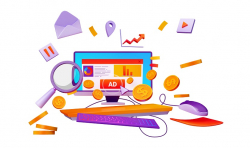 The Ads Management Services You Can Expect From a Top-rated PPC Company in Delhi
The Ads Management Services You Can Expect From a Top-rated PPC Company in Delhi
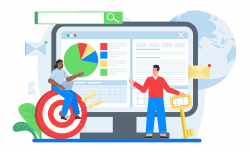 The Range of SEO Solutions That Experts Can Implement To Grow Your Business
The Range of SEO Solutions That Experts Can Implement To Grow Your Business
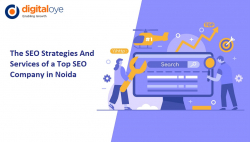 The SEO Strategies And Services of a Top SEO Company in Noida
The SEO Strategies And Services of a Top SEO Company in Noida
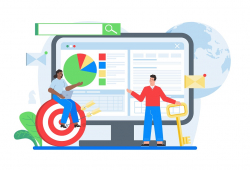 Why New and Old Businesses Should Hire a Reputable SEO Company
Why New and Old Businesses Should Hire a Reputable SEO Company
 Local SEO in 2026: Proven Ways to Rank Higher in Your Area
Local SEO in 2026: Proven Ways to Rank Higher in Your Area
 How the SEO Companies Can Help You To Rank in ChatGPT
How the SEO Companies Can Help You To Rank in ChatGPT
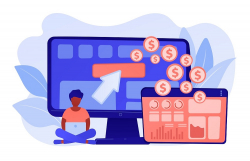 PPC Services That Help Your Business Reach the Right Audience
PPC Services That Help Your Business Reach the Right Audience
 What Are Large Language Models (LLMs) and Why They Matter in AI SEO
What Are Large Language Models (LLMs) and Why They Matter in AI SEO
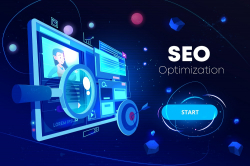 What is AI SEO and How Can It Boost Your Rankings in 2025?
What is AI SEO and How Can It Boost Your Rankings in 2025?